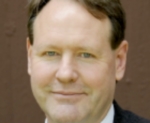Links to external sources may no longer work as intended. The content may not represent the latest thinking in this area or the Society’s current position on the topic.
Energy transduction and genome function – an evolutionary synthesis
Organised by Dr Nick Lane, Professor John Allen, Professor William Martin and Professor John Raven FRS
Event details
Living organisms are self-replicating, self-sustaining dynamic systems. Newly emerging insights into the interdependence of bioenergetics and genome function have far-reaching implications for diverse fields, from the origin of life to genomic complexity, from multicellular differentiation to ageing. This meeting brings together major contributors from diverse disciplines, with the objective of driving an evolutionary synthesis that is rooted in thermodynamics.
Biographies of the organisers and speakers are available below and you can also download the programme (PDF). Recorded audio of the presentations are available by clicking on the speakers names below and papers will be published in a future issue of Philosophical Transactions B.
Enquiries: Contact the events team.



